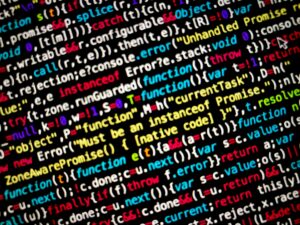Congratulations to PostGraduate Researcher, David Gann (2023) for the successful completion of his EdD thesis.
Investigating the Efficacy of Online Text Reconstruction Exercises for Facilitating the Use of Metadiscourse Markers in First-Year Japanese University Students’ Argumentative Writing. EdD thesis The Open University.
Abstract
 This thesis examines pedagogical merits of online text reconstruction exercises (OTREs) and examines their efficacy in teaching argumentative writing (AW) and students’ experience of learning through them. It looks at a specific type of OTRE called WebSequiturs and that application’s unique pedagogical affordances. Key research questions ask to what extent OTREs can influence EFL university students to use select metadiscourse markers (MDMs)
This thesis examines pedagogical merits of online text reconstruction exercises (OTREs) and examines their efficacy in teaching argumentative writing (AW) and students’ experience of learning through them. It looks at a specific type of OTRE called WebSequiturs and that application’s unique pedagogical affordances. Key research questions ask to what extent OTREs can influence EFL university students to use select metadiscourse markers (MDMs)
in written argument; and to what extent those exercises can guide students to use those MDMs appropriately. A third research question asks about students’ perceptions of their experiences completing OTREs. This study was conducted at Tokyo University of Science and involved nine students in a first-year undergraduate compulsory English course. This study strives for an interpretive understanding of participants’ experiences. Hence, I pursue this topic through action research. I also take a mixed-methods approach, using both quantitative and qualitative data. Quantitative data shows that following OTRE sessions, frequency of the use of selected MDMs in participants’ writing increased. The variety of MDMs having similar meanings likewise increased. There was also an increase in the range of communicative functions across which MDMs were used. Moreover, the unique uses of select MDMs also increased. Finally, there was an increase in appropriacy of use. Qualitative data showed that during the OTREs participants sometimes reached metalinguistic levels of awareness, as evidenced by their utterances. These utterances were frequently followed by increased levels of appropriacy of MDM use in participants’ writing. During semi-structured interviews, participants responded, evincing the view that OTREs had played an important role in their developing use of MDMs in their AW. The findings of this study suggest that OTREs are helpful in influencing English learners to become autonomous users of selected MDMs and that they can also guide learners to use MDMs appropriately. The findings also show that participants understood the purpose of the OTREs and valued the exercises for their linguistic instruction and for their collaborative qualities. In my conclusion, I recommend that universities implement programs using similar OTREs and train their teachers in how to maximise their efficacy in teaching.
You can read David’s abstract here: THESIS(GANN)C8846053.pdf (open.ac.uk)
